
In the News: Friday, 3 July 2020
From Where I Stand: As a Woman, Practicing Self-Isolation in a Home Setting is Next to Impossible Source: UN Women / Gorret Kalekwa Gorret Kalekwa, 39, is an enrolled midwife

From Where I Stand: As a Woman, Practicing Self-Isolation in a Home Setting is Next to Impossible Source: UN Women / Gorret Kalekwa Gorret Kalekwa, 39, is an enrolled midwife
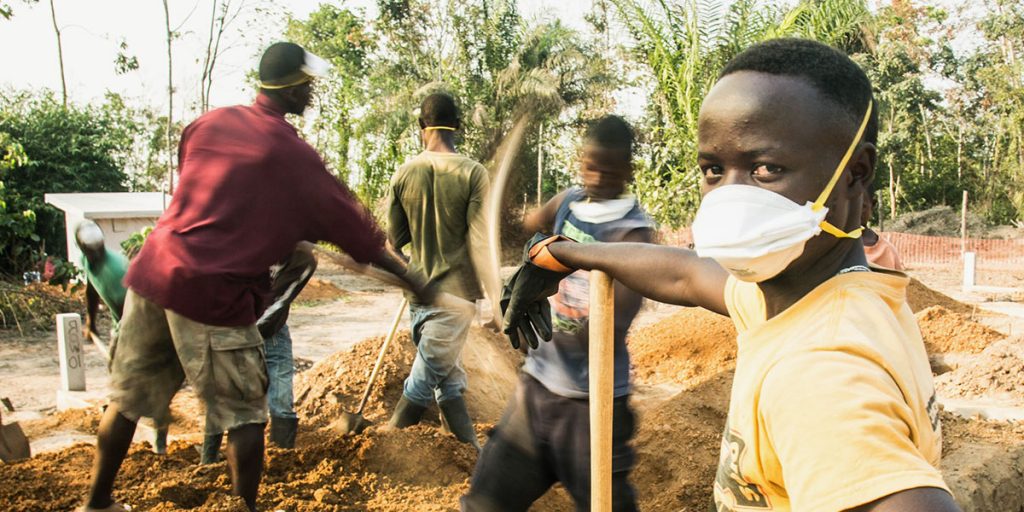
Professor Wiseman Nkuhlu provides an overview of the AU COVID-19 Response Fund

Monthly Action Points (MAP) for the Security Council: July 2020 Source: NGO Working Group on WPS For July, in which Germany has the presidency of the UN Security Council, the
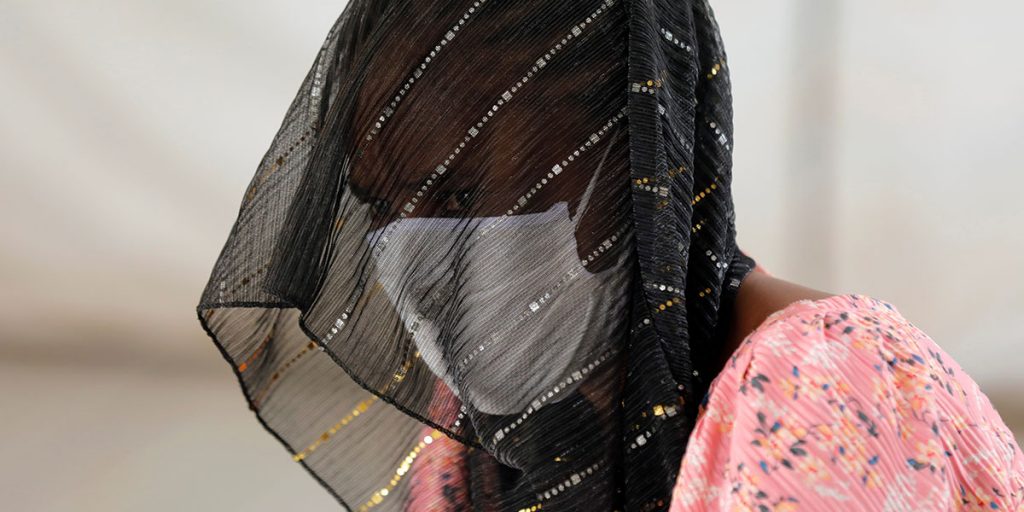
ACCORD has rapidly adapted to the new COVID-19 reality and has refocused and restructured a significant proportion of its staff and effort on identifying & monitoring, tracking & analysing, and preparing & responding to COVID-19 related social unrest and violent conflict in Africa.
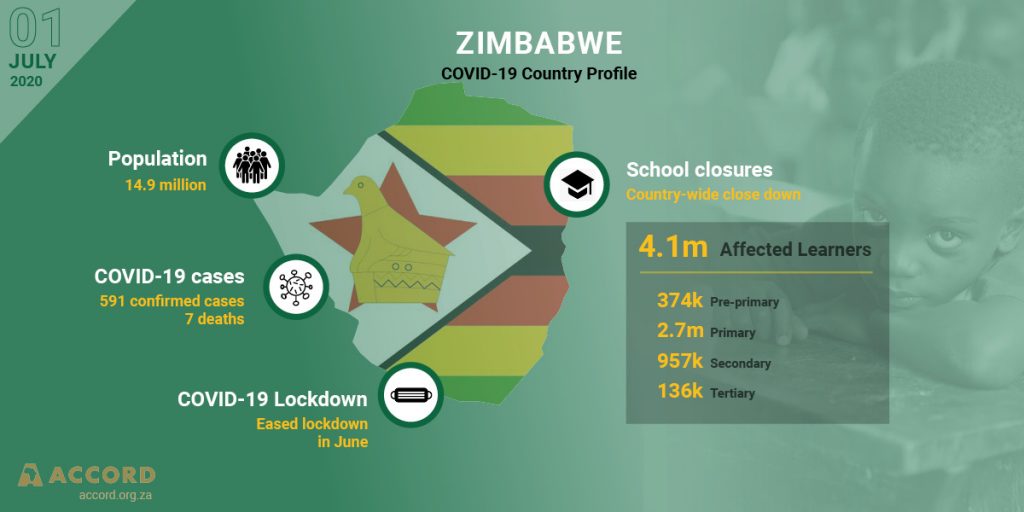
In spite of all the intentions and efforts, people are being left behind, and the children of the global poor are receiving low-quality education, if any at all. The novel nature of the COVID-19 pandemic has presented many governments with new challenges for which they are ill-prepared in all sectors, including education. As countries join hands to flatten the curve – what can citizens do to lessen the impacts of the virus on human and social life? Are the efforts and alternatives fostered going to be inclusive and, indeed, leave no one behind?
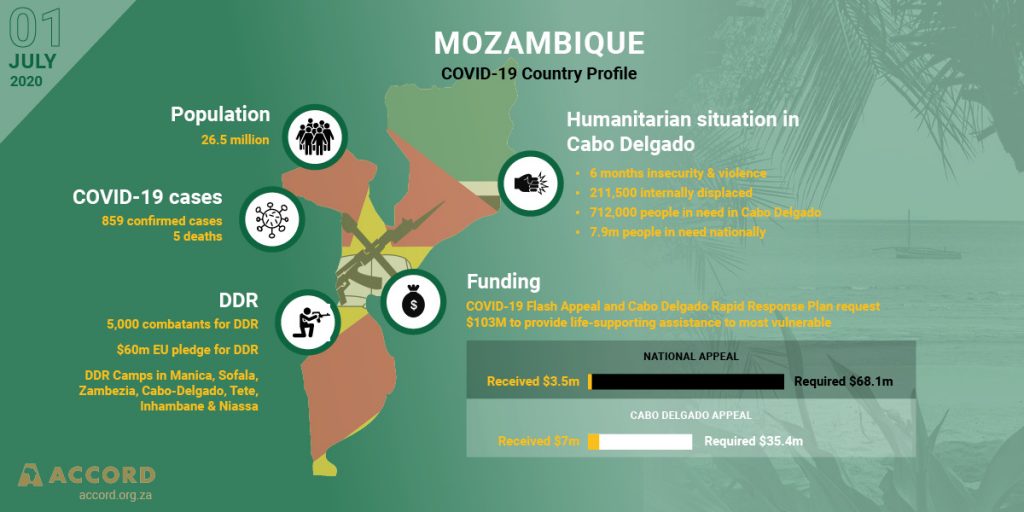
Mozambique’s definitive third peace agreement, known as the Peace and National Reconciliation Agreement, was signed by the president of Mozambique, Filipe Jacinto Nyusi, and the leader of the Resistência Nacional Moçambicana (Renamo), Ossufo Momade, on 6 August 2019. Although off to a slow start, there has recently been noticeable progress around the disarmament, demobilisation and reintegration (DDR) process of Renamo forces. However, these advances in the DDR process in Mozambique must be considered within the context of the COVID-19 pandemic.
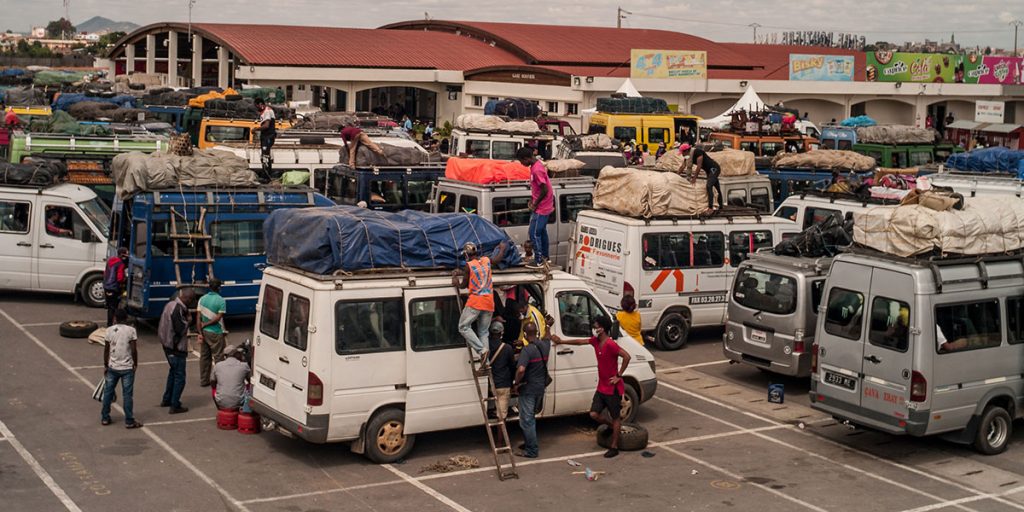
In recent weeks, as some African countries have commenced with the easing of lockdown and emergency measures – mainly to address the devastating effects of the pandemic on economies – various issues and trends have started to emerge that impact the relations between citizens and institutions.
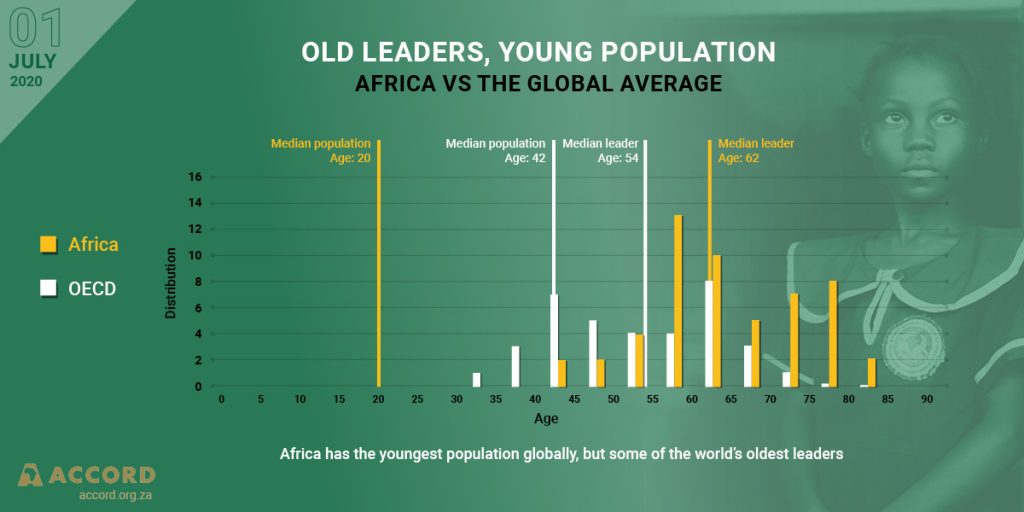
It has been more than 130 days since the first reported case of coronavirus (COVID-19) in Africa. When many were still trying to comprehend the outbreak of COVID-19, at the African Union (AU) we immediately adopted the ‘new normal’. The 13 consultations we convened with over 400 youth from 42 African countries were eye-opening on both the challenges and innovations by African youth in fighting the virus.

UN Women Releases Annual Report Source: UN Women This report tells UN Women’s story over the last year. It shares how we and our many partners are striding forward to

Women, Peace and Security in Libyan Context 25 June 2020 – Full and effective participation of women in public life, including all political processes and peace building initiatives remains essential